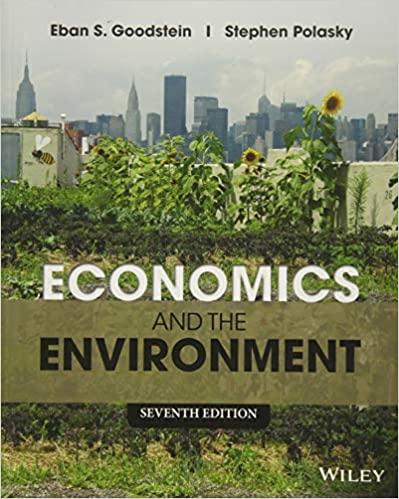In the political tug-of-war over benefit-cost analysis, some economists have argued that rather than value human lives
Question:
In the political tug-of-war over benefit-cost analysis, some economists have argued that rather than value human lives saved as a result of regulation, we should instead value “life years.” The reasoning here is that many regulations that protect, for example, air quality, have the effect of extending the lives of older people—so it is primarily old folks who benefit from pollution control.
So rather than use a figure of $7 million per life for 10,000 lives saved, the idea would be to use $7 million ∗ 5/80, figuring that the regulations, on average, extend the lives of a sample of old folks from ages 75 to 80. This new accounting of course would lead to many fewer regulations in passing a benefit-cost test, and so it was advocated by conservative politicians. When the George W. Bush administration proposed a move toward using life years saved in benefit-cost analysis, it was widely attacked as a “senior death discount,” and the proposal was quickly withdrawn.24
a. From within the framework of economics, can you imagine why other economists object to this change in valuation from lives saved to life years saved? In particular, can you think of two reasons why a 75-year-old might value (be willing to pay) more to reduce risk and live an additional year than would a teenager?
b. That said, and ignoring the 5/80 fraction, are you persuaded by the general logic that a regulation that saves the lives of a 75-year-old should show up with measured benefits relative to a regulation that saves the lives of 40-year-olds?
Why or why not?
Step by Step Answer:

Economics And The Environment
ISBN: 9781118539729
7th Edition
Authors: Eban S. Goodstein, Stephen Polasky





